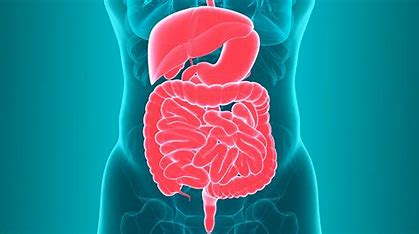What Is Gut Health and Why Does It Matter?
Gut health refers to the state of the digestive system, particularly the balance of good and bad bacteria in the gut microbiome. This microbiome is a complex ecosystem of trillions of microorganisms, including bacteria, fungi, and viruses, that live primarily in the intestines.
When the gut microbiome is in balance, it supports digestion, aids nutrient absorption, produces essential vitamins, and helps regulate the immune system. However, when this balance is disrupted—a condition known as dysbiosis—it can lead to various health concerns, including poor digestion, inflammation, and mental health challenges.
Signs of an Unhealthy Gut
An imbalanced gut microbiome can manifest in several ways, often affecting different parts of the body. Recognizing these signs is the first step toward addressing potential gut health issues.
Common Symptoms of Gut Imbalance
-
Digestive Problems: Symptoms like bloating, diarrhea, constipation, and gas are often linked to gut health issues.
-
Fatigue: An unhealthy gut can affect how your body extracts energy from food, leading to constant tiredness.
-
Skin Issues: Conditions such as acne, eczema, and rosacea may be linked to gut inflammation.
-
Mental Health Concerns: Imbalances in the gut can disrupt the gut-brain axis, contributing to anxiety, depression, and brain fog.
-
Immune System Weakness: A significant portion of the immune system resides in the gut, and imbalances can make you more susceptible to illnesses.
Flora Imbalance Symptoms
Flora imbalance refers to an overgrowth of harmful bacteria or a reduction in beneficial bacteria in the gut. Symptoms include:
-
Frequent yeast infections or fungal growth.
-
Cravings for sugar and refined carbohydrates.
-
Bad breath or a metallic taste in the mouth.
-
Chronic digestive discomfort.
Dirty Colon Symptoms
The colon, or large intestine, plays a key role in waste elimination and nutrient absorption. A poorly functioning colon can lead to:
-
Constipation or irregular bowel movements.
-
Foul-smelling stools.
-
Persistent bloating and discomfort.
-
Fatigue and low energy levels.
Testing for Gut Health
If you’re experiencing symptoms of gut imbalance, testing can help identify the root cause. Modern diagnostic tools provide insights into the state of your gut microbiome, helping to create personalized strategies for improvement.
Dysbiosis Tests
A dysbiosis test analyzes the composition of bacteria in your gut. It can identify harmful bacteria overgrowth, yeast, or parasites, as well as deficiencies in beneficial bacteria. These tests are non-invasive and typically involve a stool sample.
Benefits of a dysbiosis test include:
-
Identifying specific imbalances in gut flora.
-
Highlighting markers of inflammation or leaky gut syndrome.
-
Guiding dietary and lifestyle adjustments to restore balance.
Supporting Gut Health Through Nutrition
Diet is one of the most effective ways to improve gut health. Certain foods promote the growth of beneficial bacteria, while others can harm the microbiome.
7 Foods for Better Gut Health
-
Yogurt: Rich in probiotics, yogurt contains live bacteria that support gut health.
-
Kefir: This fermented drink has a higher probiotic content than yogurt and is also rich in nutrients.
-
Sauerkraut: Fermented cabbage provides probiotics and fiber, which nourish gut bacteria.
-
Kimchi: A spicy Korean dish made from fermented vegetables, packed with beneficial bacteria.
-
Garlic and Onions: These prebiotic foods feed the good bacteria in your gut.
-
Bananas: High in fiber and prebiotics, bananas help balance gut bacteria.
-
Whole Grains: Foods like oats, barley, and quinoa provide fiber that supports healthy digestion.
Foods to Avoid
Certain foods can harm gut health by promoting the growth of harmful bacteria or causing inflammation. These include:
-
Refined sugars and processed foods.
-
Artificial sweeteners, which may disrupt the microbiome.
-
Excessive alcohol, which can damage the gut lining.
The Gut-Brain Connection
The gut and brain are deeply interconnected through the gut-brain axis, a communication network that links the central nervous system and the enteric nervous system in the gut.
How Gut Health Affects Mental Health
-
Serotonin Production: Approximately 90% of the body’s serotonin—a neurotransmitter that regulates mood—is produced in the gut.
-
Stress Response: Chronic stress can disrupt gut bacteria, leading to imbalances that further exacerbate stress and anxiety.
-
Cognitive Function: Emerging research suggests that gut health may influence memory, focus, and decision-making.
Competitor Points: Popular Gut Health Products
With the growing interest in gut health, numerous products claim to improve the microbiome. These include probiotics, prebiotics, and dietary supplements. While some are effective, not all products deliver on their promises.
Evaluating Gut Health Products
-
Probiotics: Look for strains like Lactobacillus and Bifidobacterium, which have been extensively studied for their benefits.
-
Prebiotics: Ensure the product contains ingredients like inulin or chicory root, which feed good bacteria.
-
Supplements: Avoid products with unnecessary additives or unverified claims.
Natural dietary sources of probiotics and prebiotics are often more beneficial than supplements, as they provide additional nutrients and fiber.
Frequently Asked Questions
What is gut health, and why is it important?
Gut health refers to the balance of bacteria and microorganisms in the digestive system. It impacts digestion, immunity, mental health, and overall well-being.
What are the symptoms of poor gut health?
Signs include digestive issues, fatigue, skin problems, mental health challenges, and frequent infections.
How can I improve my gut health?
Focus on a diet rich in fiber, probiotics, and prebiotics. Avoid processed foods, excessive alcohol, and artificial sweeteners.
What is a dysbiosis test?
A dysbiosis test analyzes the gut microbiome to identify imbalances or overgrowth of harmful bacteria. It provides insights for personalized treatment.
Do probiotics really work?
Yes, probiotics can be effective for improving gut health, but their benefits depend on the strains used and individual factors.
Gut health is essential for overall wellness. By understanding the factors that influence the microbiome and making informed dietary and lifestyle choices, you can support a healthier, more balanced gut for improved physical and mental health.
